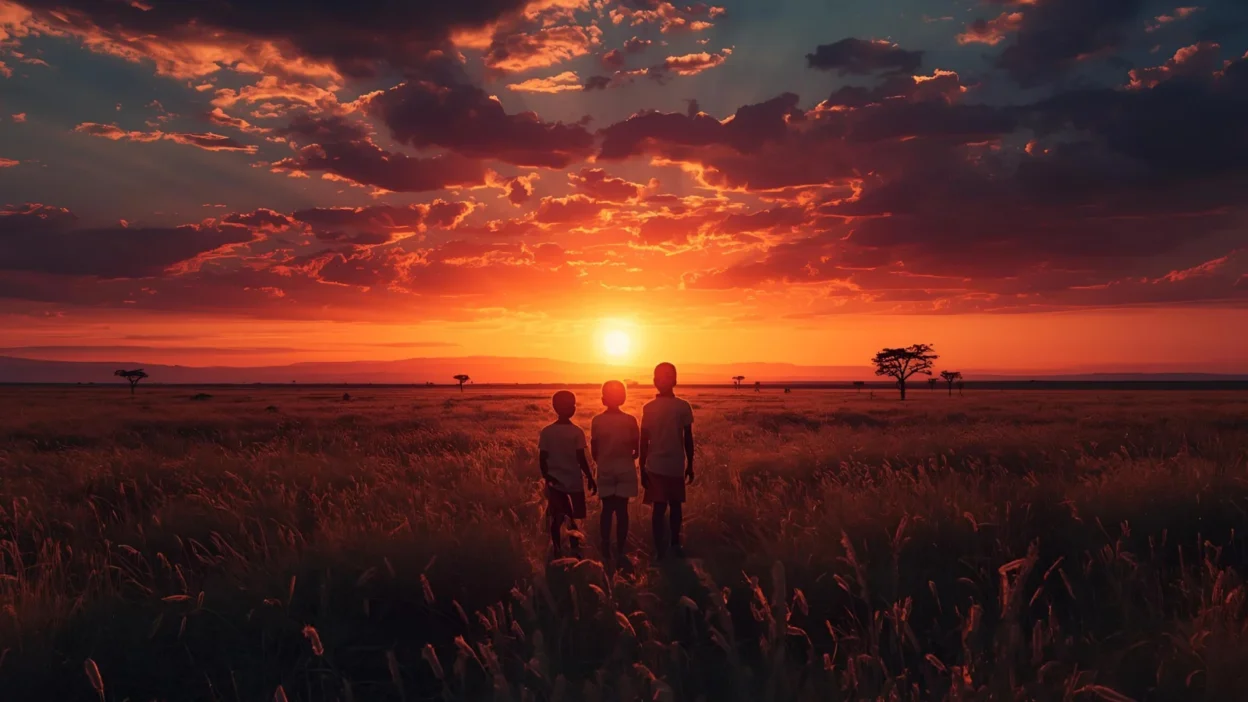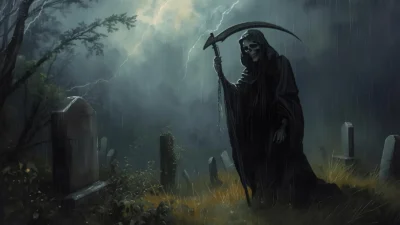Imagine walking into a room where technology can turn your imagination into reality. Walls dissolve into an endless African savanna. Lions roam in the heat. Vultures circle in the sky. At first, it feels magical, but then you sense something darker beneath the beauty. This is the power of Ray Bradbury’s short story The Veldt.
Many readers walk away wondering: What does all of this mean? Why lions, vultures, and a nursery that seems alive? The truth is that Bradbury wrote The Veldt as both a warning and a mirror.
It reflects our relationship with technology, family, and even our inner fears. By exploring symbolism in The Veldt, we can uncover emotional and spiritual lessons that go beyond the story itself.
This article will guide you through the deeper meaning behind Bradbury’s masterpiece. From the nursery’s symbolic power, to the vultures and lions, to the clever use of foreshadowing and irony, every detail offers insight into our lives today. Let’s dive in.
Symbolism in The Veldt Quotes
Bradbury doesn’t waste words. His quotes are rich with symbolic meaning.
- “The walls began to purr and recede into crystalline distance, it seemed, and presently an African veldt appeared.”
– The nursery symbolizes how technology can blur the line between reality and illusion. - “Vultures were dropping down the blazing sky.”
– These birds become symbols of death, circling above the family’s disconnection. - “Children are carpets, you lay them out and step on them, and they turn into rugs.”
– A haunting metaphor about parenting, showing how neglect can harden innocence.
Through these quotes, the symbolism in The Veldt creates a warning about ignoring the emotional needs of family in favor of convenience and distraction.
What Does the Nursery Symbolize in The Veldt?
The nursery is the heart of the story. On the surface, it’s a high-tech playroom where children’s thoughts become living images. But symbolically, it represents:
- Technology as parent – The nursery takes the place of George and Lydia Hadley’s parenting.
- Imagination without boundaries – The children’s fantasies become dangerous when unchecked.
- Escapism – The room is a way for Wendy and Peter to avoid emotional connection with their parents.
- Loss of control – It reflects what happens when machines run our lives.
In today’s world, the nursery mirrors our dependence on phones, games, and social media—powerful tools that can nurture or destroy depending on how we use them.
What Do the Vultures Symbolize in The Veldt?
Vultures in literature almost always symbolize death, decay, or waiting for destruction. In The Veldt, their circling presence foreshadows the parents’ grim fate.
Spiritually, vultures are also scavengers—they feed off what’s left behind. This reflects how technology in the story feeds off the absence of love, discipline, and human presence.
For readers, the vultures are reminders: if we don’t nurture our relationships, something else will swoop in to take their place.
Irony in The Veldt
Bradbury uses irony to sharpen his warning.
- Situational Irony – The nursery, designed to bring joy and comfort, becomes a place of death.
- Dramatic Irony – The parents don’t realize until too late that the lions are more than illusions, but the reader senses it from the beginning.
- Verbal Irony – George insists they control the house, yet the children truly hold the power.
This irony deepens the story’s message: what we create to make life easier can, if left unchecked, destroy us.
Foreshadowing in The Veldt
From the very first page, Bradbury sprinkles foreshadowing that builds suspense.
- The screams George hears early on hint at his and Lydia’s deaths.
- The vultures foreshadow destruction circling the family.
- The children’s obsession with the veldt signals danger.
Foreshadowing creates a sense of inevitability. Spiritually, it reminds us that signs often appear before disaster—we just need to pay attention.
Personification in The Veldt
Bradbury gives the nursery almost human qualities, using personification to show how technology becomes alive:
- The nursery “purred” like a living creature.
- The walls “recall” the children’s thoughts.
- The house itself “sang” and “rocked” the family to sleep.
This personification symbolizes how humans can hand over their power until machines feel more alive than people themselves. It’s a warning still relevant in our age of AI and smart homes.
What Do the Lions Symbolize in The Veldt?
The lions are the most chilling symbols in the story.
- Violence and suppressed anger – They represent the children’s hidden resentment toward their parents.
- Power of imagination – What we think can manifest into reality if fueled by emotion.
- Technology unleashed – Just like the lions, the nursery becomes uncontrollable.
The lions symbolize the destructive potential of both technology and unexpressed human emotions. Spiritually, they are warnings: fear and anger, if not addressed, can consume those closest to us.
Theme of The Veldt
The main theme is clear: when technology replaces love, destruction follows. But Bradbury weaves in other themes too:
- Disconnection – Parents and children grow apart.
- Materialism – Comfort replaces emotional care.
- Power of the mind – Thoughts create reality.
- Nature vs. machine – The veldt, though artificial, overwhelms human control.
These themes resonate deeply today, reminding us that no machine can replace authentic connection, compassion, and presence.
Symbolism in The Veldt Summary
To summarize the symbolism in The Veldt:
- The nursery: technology, imagination, and parental replacement.
- The lions: suppressed anger, danger, and destruction.
- The vultures: foreshadowing death, spiritual decay.
- The veldt itself: human disconnection, survival instincts, and untamed desires.
Bradbury’s story isn’t just sci-fi. It’s a timeless parable about the dangers of forgetting our humanity in a world of machines.
Real-Life Scenarios
Scenario 1: A Teen Obsessed with Video Games
Like Peter and Wendy, a teen escapes into gaming, replacing family conversations with virtual battles. The symbolism reminds us of the need for balance.
Scenario 2: A Family Dinner with Phones
Parents and kids sit together, but everyone is lost in their screens. The nursery’s warning echoes here: without connection, relationships weaken.
Scenario 3: AI Replacing Care
An old age man relies on robots for daily care. While helpful, the absence of human touch leaves him emotionally hungry—mirroring Bradbury’s theme.
FAQs
1. What does the veldt symbolize in Bradbury’s story?
It symbolizes the children’s suppressed emotions and the dangers of technology replacing human care.
2. Why are vultures important in The Veldt?
They symbolize death circling overhead, foreshadowing the story’s tragic end.
3. What does the nursery teach us about technology?
It shows that machines can’t replace emotional connection and parenting.
4. How does foreshadowing work in The Veldt?
Early details—like screams, vultures, and obsession—hint at the parents’ deaths.
5. What is the spiritual message of The Veldt?
It warns us to stay emotionally present, value real love, and not surrender our power to machines.
Conclusion
Ray Bradbury’s The Veldt isn’t just a story about futuristic technology. It’s a spiritual mirror reflecting our own world. The symbolism in The Veldt—from the lions to the vultures—teaches us that when we trade love for convenience, or presence for screens, we risk losing what makes us human.
If you’ve ever felt tension between your digital life and your real relationships, let this story remind you: technology should serve us, not consume us. Like the veldt itself, it can either be a tool for growth or a trap of destruction. The choice is ours.
Take a moment today to step away from the screens, connect with your loved ones, and remember—you are more than your machines.




